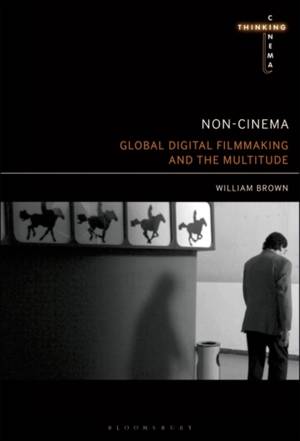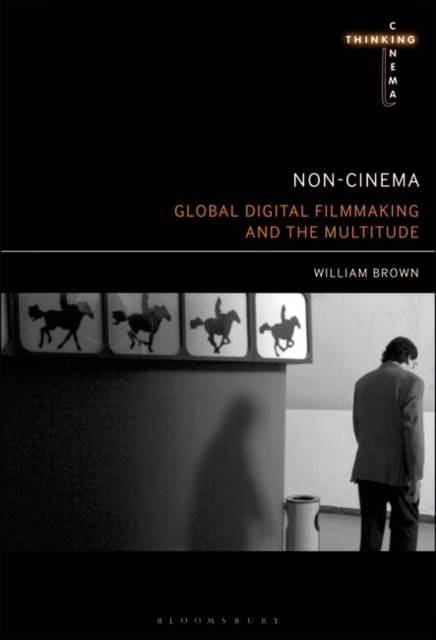
Bedankt voor het vertrouwen het afgelopen jaar! Om jou te bedanken bieden we GRATIS verzending (in België) aan op alles gedurende de hele maand januari.
- Afhalen na 1 uur in een winkel met voorraad
- In januari gratis thuislevering in België
- Ruim aanbod met 7 miljoen producten
Bedankt voor het vertrouwen het afgelopen jaar! Om jou te bedanken bieden we GRATIS verzending (in België) aan op alles gedurende de hele maand januari.
- Afhalen na 1 uur in een winkel met voorraad
- In januari gratis thuislevering in België
- Ruim aanbod met 7 miljoen producten
Zoeken
€ 76,45
+ 152 punten
Uitvoering
Omschrijving
Non-Cinema: Global Digital Film-making and the Multitudeprovides an original film-philosophy through which to understand low budget digital filmmaking from around the globe. It draws upon a wide range of western and non-western philosophers, physicists, theorists of 'Third Cinema, ' and contemporary film theorists and film-philosophers in order to argue that the future of cinema lies at the margins, in the extreme, the overlooked and the under-funded - the sort that distributors, exhibitors and audiences would not consider to be cinema at all, hence "non-cinema."
Analysing numerous films, William Brown argues that contemporary low-budget digital cinema is also through its digital form a political cinema that suggests that we are not detached observers of the world, but entangled participants therewith. Non-Cinema constructs this argument by looking at work by established filmmakers like Jean-Luc Godard, Abbas Kiarostami, Jafar Panahi and Michael Winterbottom, as well as lesser known work from places as diverse as Asia, the Middle East, Europe, the Americas and Africa.
Analysing numerous films, William Brown argues that contemporary low-budget digital cinema is also through its digital form a political cinema that suggests that we are not detached observers of the world, but entangled participants therewith. Non-Cinema constructs this argument by looking at work by established filmmakers like Jean-Luc Godard, Abbas Kiarostami, Jafar Panahi and Michael Winterbottom, as well as lesser known work from places as diverse as Asia, the Middle East, Europe, the Americas and Africa.
Specificaties
Betrokkenen
- Auteur(s):
- Uitgeverij:
Inhoud
- Aantal bladzijden:
- 312
- Taal:
- Engels
- Reeks:
Eigenschappen
- Productcode (EAN):
- 9781501361654
- Verschijningsdatum:
- 23/01/2020
- Uitvoering:
- Paperback
- Formaat:
- Trade paperback (VS)
- Afmetingen:
- 152 mm x 229 mm
- Gewicht:
- 412 g

Alleen bij Standaard Boekhandel
+ 152 punten op je klantenkaart van Standaard Boekhandel
Beoordelingen
We publiceren alleen reviews die voldoen aan de voorwaarden voor reviews. Bekijk onze voorwaarden voor reviews.









